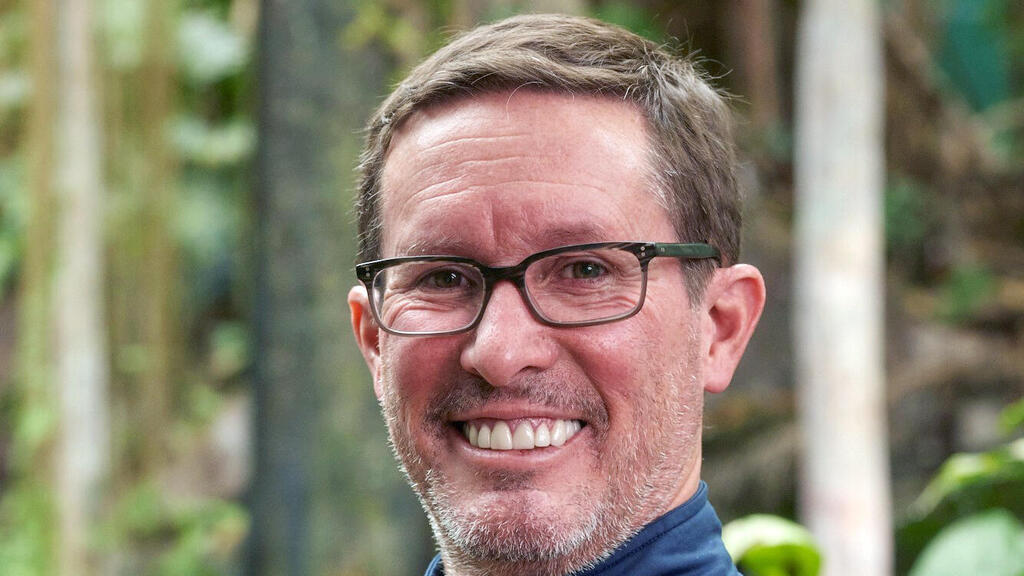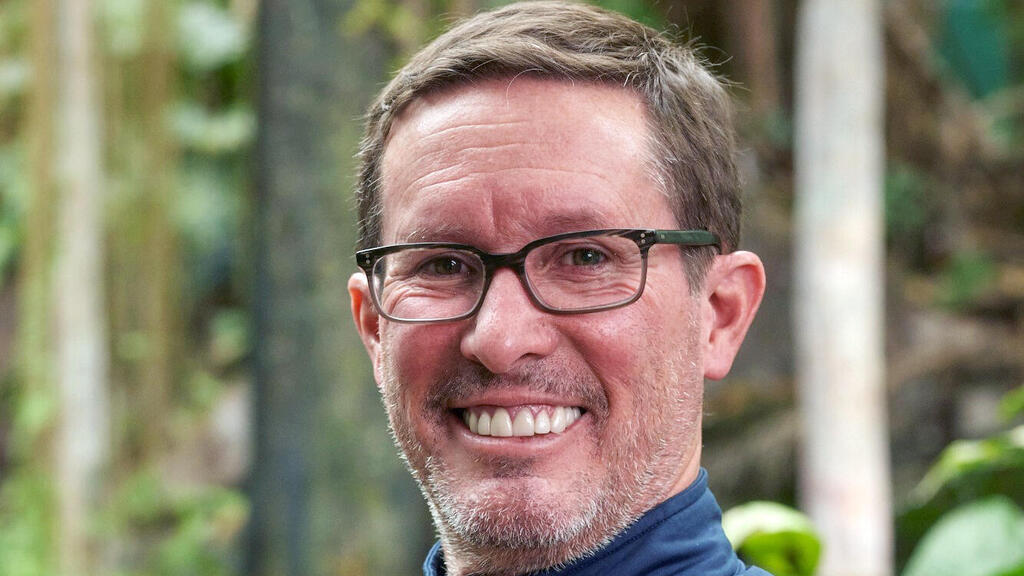
"Water infrastructure is often our first line of defense in dealing with climate change"
Patrick Decker, the CEO of Xylem, spoke to Calcalist about how the water crisis will impact society and international commerce
In a world grappling with water scarcity and the urgent need for sustainable infrastructure, Patrick Decker, the CEO of Xylem, aims to use innovation to create a change. Xylem, a global leader in water infrastructure solutions, tackles the pressing challenges of our time head-on. In an exclusive interview, Decker sheds light on the complex issues plaguing the water sector today, from the global water shortage and infrastructure durability to affordability concerns. He reveals how Xylem's cutting-edge technology and data-driven approach revolutionize water system management, mitigate the impact of climate change, and drive sustainability.
What are the biggest challenges in the water sector today?
"The water industry has several big challenges today: the lack of drinkable water as well as the lack of water for industry and agriculture, the durability of the infrastructure, and the need to reduce costs. Regarding the water shortage, most people think that it is felt only in poor villages in certain countries or in places with drought, but the water shortage is not only felt in households, but also in many businesses. For example: to produce computer chips, medicine and clothing you need water. Without their supply, production will stop. Of course, certain treatments in hospitals also require water, and without them the hospitals will lose money. The shortage can even endanger the reputation of companies. At the end of the day, the water shortage affects every aspect of the economy.
"One of the biggest challenges is affordability. The solutions sound great, but who will pay for them? It's not cheap. That's why in the last decade we've been investing more and more in data analysis and innovation, to enable our customers to manage their water, according to their specific infrastructure."
We are in the midst of a huge climate crisis with oceans rising, deadly heat waves in India, floods in Italy and droughts in Europe. How does this specifically affect your customers and work?
"The crisis directly affects the durability of the infrastructure - water infrastructure is often our first line of defense in dealing with climate change. When it is damaged, there is a significant loss of water. Many of the natural disasters we have seen in the last decade - and these are only getting worse - were related to water. Innovative technology that will preserve the durability of water infrastructure is necessary for the existence of society and commerce."
Related articles:
Xylem provides solutions for water system management. For example, one of their solutions locates water pipes, since there is often no documentation of the infrastructure. The advantage of their solution is that they can fix leaks in the pipes and maintain the network in a more precise way, while saving the labor costs of locating the piping. The company also sells traditional water infrastructure equipment such as pumps and pipes.
What is the state of water infrastructure in Israel?
"In Israel you have one of the most developed water infrastructures in the world, and there are relatively accurate maps of where the pipes and water infrastructures are. In the U.S., there are cities whose water infrastructures were built 100 years ago, so there are maps, but they are not accurate and we do not know exactly where the infrastructures are. We have the possibility to digitally map the water infrastructure, and save a lot on labor and energy costs in infrastructure maintenance."
How exactly is the mapping done?
"The mapping is done by robots that move inside the water pipes and broadcast the state of the infrastructure."
You spoke earlier about the challenge of the rising price of water in the world. How do you deal with it?
"One of the technologies enables savings by checking the condition of the pipes themselves and the flow of water in them, regardless of the year in which they were built. In most of the world, infrastructure is replaced after a certain amount of time. But sometimes, it happens that the pipes are still in good condition and there is no need to replace them. We have technology that tests the quality of the pipes. We locate the exact locations of the leaks using acoustic and electromagnetic sensors that prevent unnecessary digging in the ground. The savings in replacing infrastructure is also reflected in energy savings, which is a major challenge in the water market. I was recently in California and replacing all the infrastructures there could take decades and cost hundreds of millions of dollars. Our technology makes it possible to upgrade the infrastructures in a specific and more economical way."
How?
"As soon as the infrastructure is mapped, it is possible to access and fix only the areas that require treatment."
You said that Israel's water infrastructure is very developed. What do you mean by that?
"We have been operating through brokers and agents for decades, but we feel that now is the right time to enter directly and do big things here, including hiring a local manager about a year ago who manages operations in Israel. We established a new innovation center with Kinneret Academic College and Mekorot, which will include investment in research and development, through which we can study creative solutions that are being developed here for the water shortage and export them.
"We also signed a contract with Mekorot, granting the company a license to use our technology to examine the state of the water infrastructure. We will also train Mekorot employees to use this specific technology and they will be able to use it in Israel and other places that we can’t reach."
How did the water authority react to the agreement?
"We met with the Water Authority and I was happy to see that it is working to adopt technologies, including ours, and adapt regulations in Israel. After all, you can't ignore the regulations, so when they don't allow new technology, it's very difficult to move forward. We also met with the Innovation Center at the Kinneret Academic College to promote our activities in Israel."
What is your main advantage as a company?
"One of our great advantages, as a company active in 150 countries, is that we possess a broad view of the world of water. This way we can also connect and transfer knowledge between countries. Water itself is, of course, local, but the knowledge of how to manage it can be transferred from country to country. For us, Israel is a center of innovation and invention, and therefore, one of our largest customers, an infrastructure company in Singapore, is in Israel quite a bit and studies water management and shares ideas with the Israeli authorities."
In Israel, the biggest challenge of the water sector is its high energy consumption. Mekorot, for example, is the largest consumer of electricity in Israel, consuming up to 5% of the country's total electricity.
"A water system consumes a lot of energy. Saving energy is one of the main ways to reduce the cost of the water system. The challenge in Israel is a high demand for electricity, together with the population that grows at a rate of about 2% per year, which puts enormous pressure on the energy market. We have achieved significant energy savings world-wide. We know how to map the country's water infrastructure, which eliminates the need for excavations to check where the infrastructure is, which requires trucks and drills. The same is true for the treatment facilities themselves. We have seen that some of our technologies can save energy costs by up to 30%. For example, our ability to produce a digital twin (to build a virtual model of the regional water system) using our models of water consumption and weather, allows us to know at what pressure to operate the pumps. This allows us to prevent cases in which the city's infrastructure will be put under strain due to extreme conditions and lack of preparation to run the pumps, but not to create a situation of wasted energy by running them excessively. In the long run, water infrastructures finance themselves, but you have to invest the money in advance."
Xylem operates in 150 countries, employs 22,000 people, and its revenues in 2022 were $5.5 billion. The corporation recently signed a cooperation agreement with Mekorot. Mekorot employees will be trained to operate a system for monitoring water infrastructure via robots that pass through pipes and test their quality.
